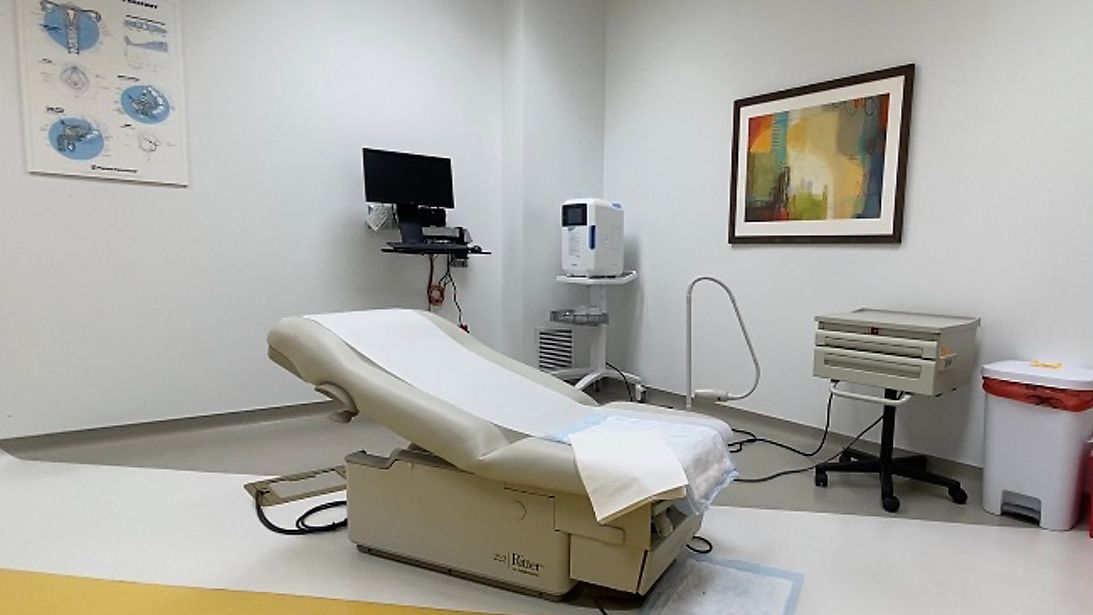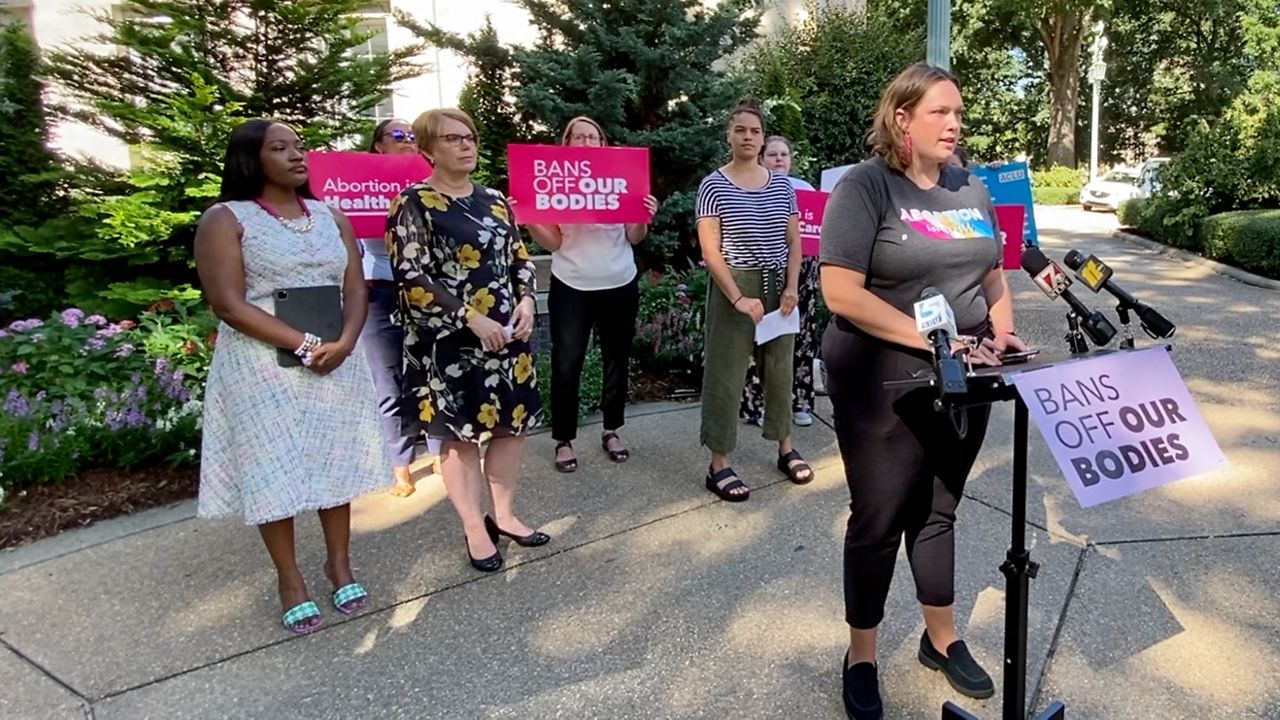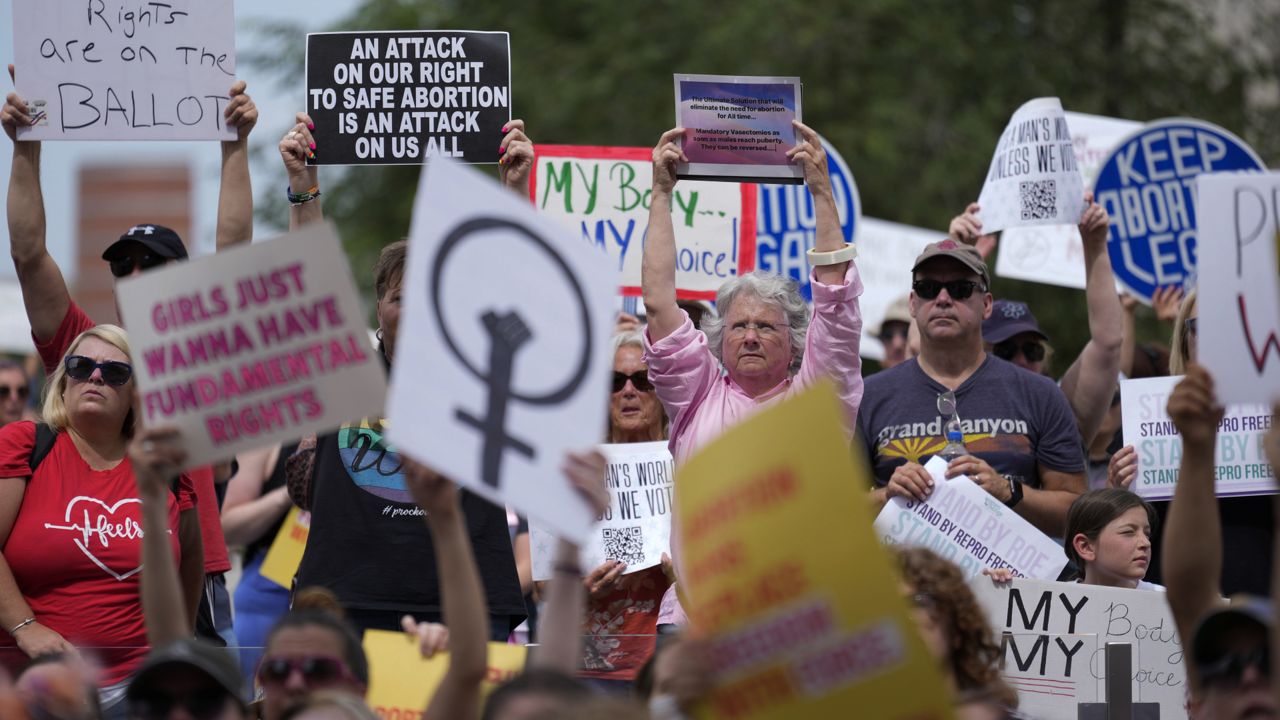COLUMBIA, S.C. — South Carolina’s Fetal Heartbeat Act is now in effect following the Supreme Court’s recent ruling overturning Roe v. Wade, the state’s Attorney General Alan Wilson announced Tuesday.
Nearly 300 people packed the South Carolina State House grounds Tuesday, voicing their opinions about the Fetal Heartbeat Act.
Fetal heartbeat bill enforced in South Carolina
Nearly 300 people filled the statehouse grounds to voice their opinion about the law
Organizers concerned about impact on nearby states
Wilson says the Supreme Court’s ruling negated the basis for an injunction blocking the law, which allowed the U.S. District Court of South Carolina to issue a stay.
“The Heartbeat Law is now in effect. Once Roe v. Wade was overturned by the Supreme Court, the decision on legally protecting the lives of unborn babies was returned to the states, so there was no longer any basis for blocking South Carolina’s Heartbeat Law,” Wilson said in a statement. “Our state is now carrying out a government’s most sacred and fundamental duty, protecting life.”
The law prohibits an abortion after a fetal heartbeat has been detected, which is usually within six weeks of a pregnancy.
S.C. Gov. Henry McMaster signed the fetal heartbeat bill last year, but an injunction prevented the law from being enforced.
However, the courts lifted the injunction Monday, three days after the Supreme Court overturned Roe v. Wade, the landmark case that protected a woman’s right to choose an abortion.
Protesters filled the state house, as part of the Fill the State House Lobby event.
Folks were chanting and displaying signage, calling on lawmakers to hear and take action on their concerns.
Some people said they fully support the fetal abortion law and want more done to ban abortions.
Alexander Wirth says he’s against abortion rights.
He’s backing proposed bills that will prevent any woman from having an abortion altogether.
“Anybody that wants to murder another human being, they should [face] criminalization,” Wirth said.
Many of the protesters attending the event expressed different views.
Brooke McKenzie lives and attends college in Myrtle Beach.
She says a woman has a right to choose what happens to her body. She’s against any enforcement of the Fetal Heartbeat Act.
“I hope the young people can make the change back and get Roe v. Wade back as it was, and hopefully laws to ensure Roe v. Wade stays in place, so we can have the choice that needs to be had,” McKenzie said. “I hope the young people can make the change back and get Roe v. Wade back as it was, and hopefully laws to ensure Roe v. Wade stays in place, so we can have the choice that needs to be had,” McKenzie said.
Organizers with Tuesday’s protest say they’re closely monitoring the state house to see if a special session could result in a new abortion ban.
Back in May, The South Carolina General Assembly passed a ‘sine die resolution.’
A spokesperson for the governor’s office stated that resolution "allows them to come back into session for the purpose of dealing with legislation in the event that the Dobbs decision came down from the General Assembly."
Although the Fetal Heartbeat Act can now be enforced, some wonder if more abortion bans could be in the works.
Ann Warner is CEO of Women’s Rights and Empowerment Network (WREN), one of the groups organizing Tuesday’s Fill the State House Lobby protest event.
Warner says some lawmakers are pushing to pass what she refers to as "radical abortion bans" in South Carolina.
“We don’t expect that to happen today, it would have to happen between July and November, but we know they’re working on it. We know that we’re ready to be here in opposition to any abortion ban in South Carolina. And we’re here in support of a bill that would affirm access to abortion care and all forms of reproductive health care in South Carolina, and that’s Senate Bill 1348-the reproductive health rights act,” Warner said.
Warner say it’s hard for her to know for sure how the Fetal Heartbeat Act will impact nearby states, including North Carolina.
“It’s hard to say right now,” she said. “We’re in a state of chaos right now, all around the country. People are trying to figure out what care they can provide and how that may change in the near future. The situation is really fluid. That’s part of what makes it so dangerous and unsettling for people.”
Under the state’s Heartbeat Law, abortions are prohibited after the point at which a heartbeat can be detected. Doctors are also required to give a mother the chance to view an ultrasound, hear the child’s heartbeat and receive information about the child’s development.
The law does include exceptions for mothers seeking an abortion in cases of rape or incest, but only if the fetus is under 20 weeks along. Exceptions are also in place in cases where an abortion is necessary to save the mother’s life.









